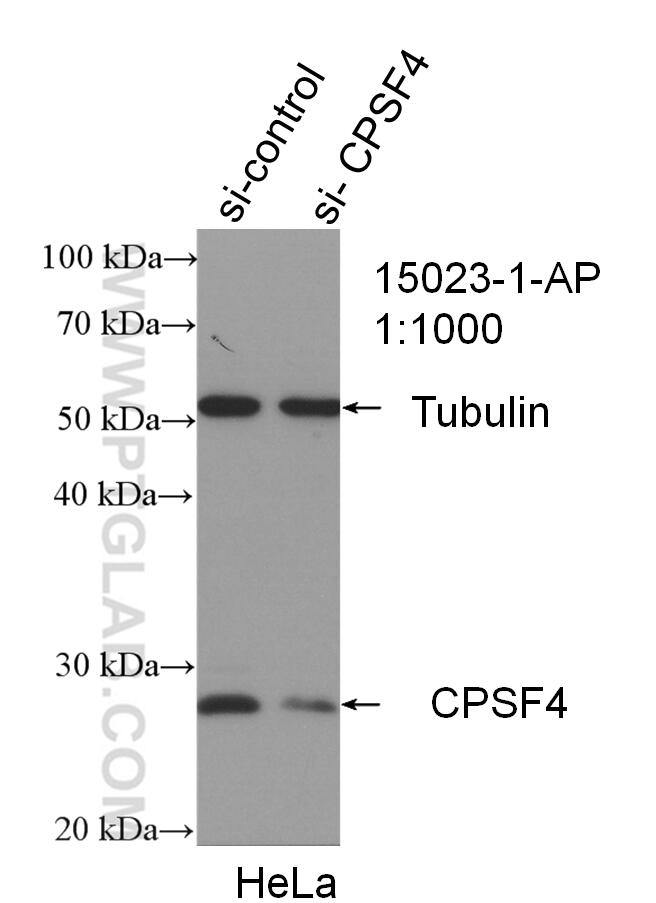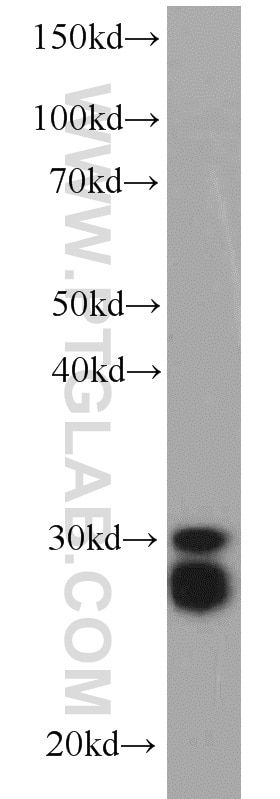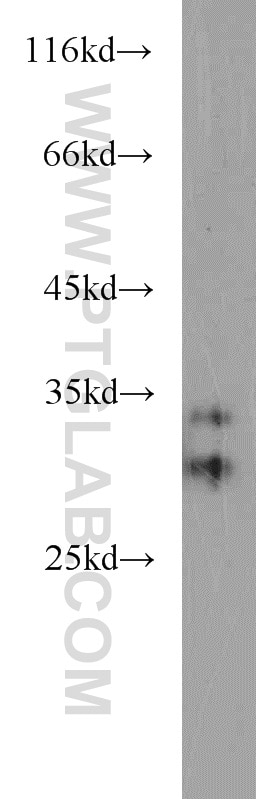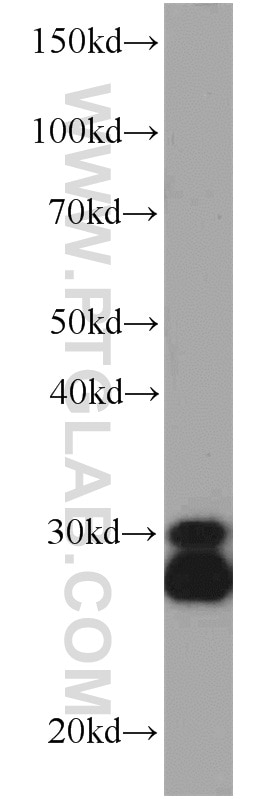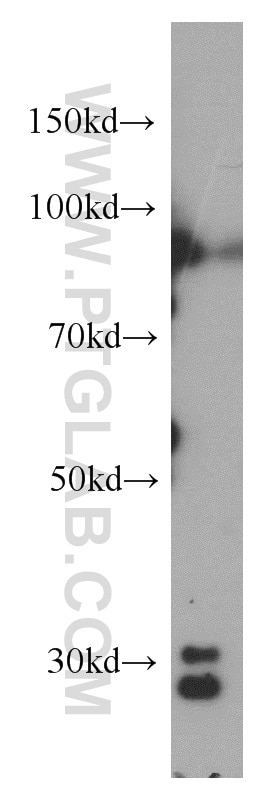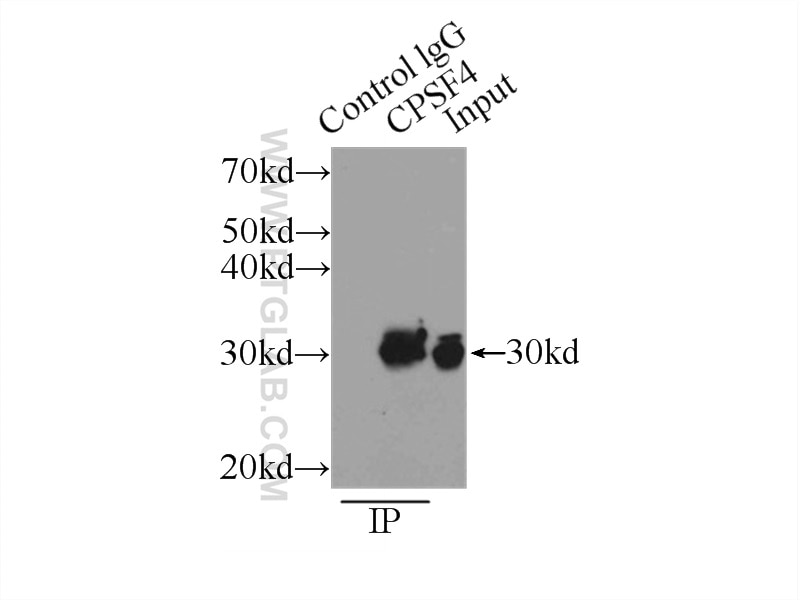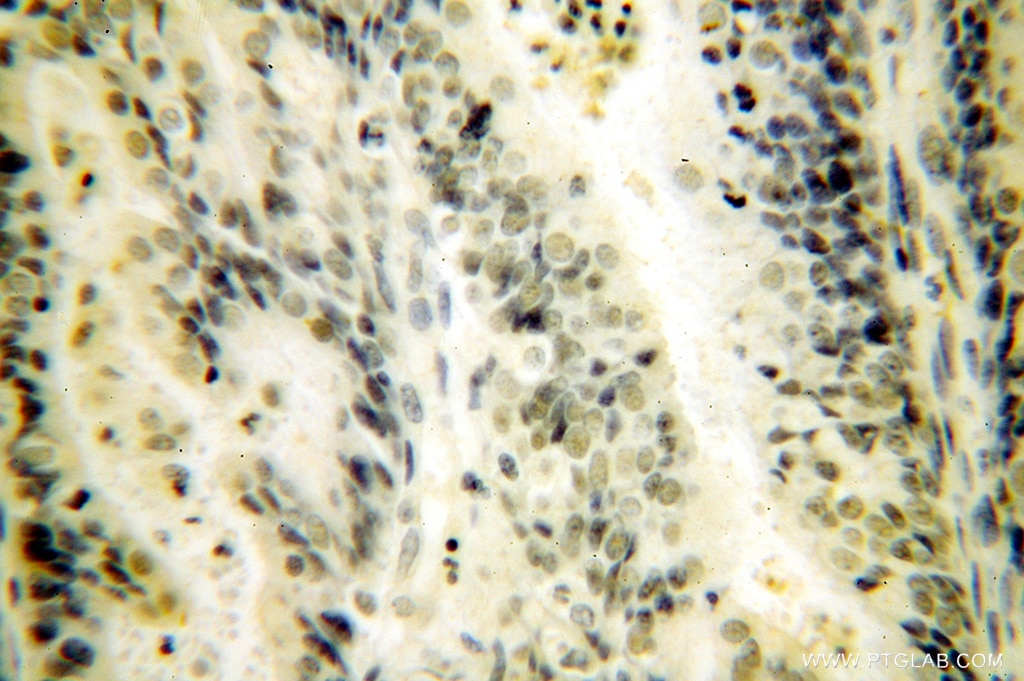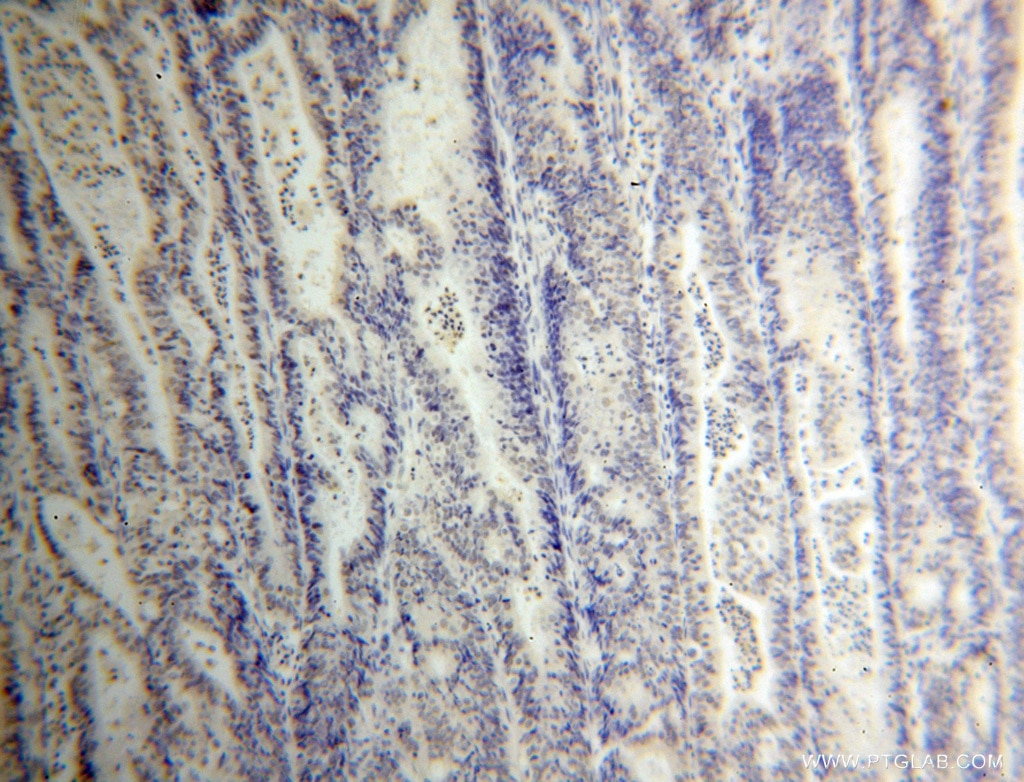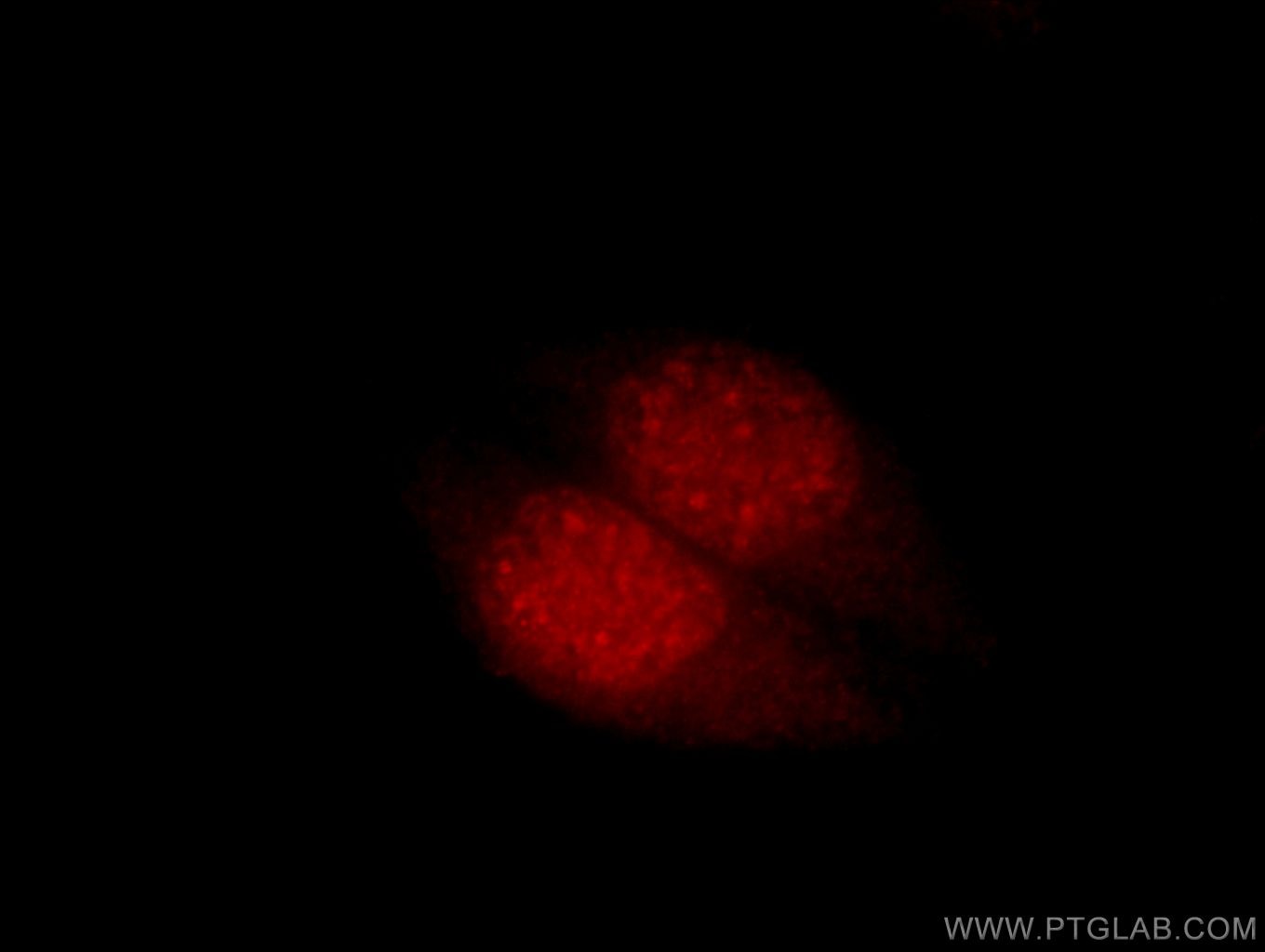Tested Applications
| Positive WB detected in | Jurkat cells, HepG2 cells, HeLa cells, HEK-293 cells |
| Positive IP detected in | HeLa cells |
| Positive IHC detected in | human endometrial cancer tissue Note: suggested antigen retrieval with TE buffer pH 9.0; (*) Alternatively, antigen retrieval may be performed with citrate buffer pH 6.0 |
| Positive IF/ICC detected in | HepG2 cells |
Recommended dilution
| Application | Dilution |
|---|---|
| Western Blot (WB) | WB : 1:500-1:1000 |
| Immunoprecipitation (IP) | IP : 0.5-4.0 ug for 1.0-3.0 mg of total protein lysate |
| Immunohistochemistry (IHC) | IHC : 1:20-1:200 |
| Immunofluorescence (IF)/ICC | IF/ICC : 1:20-1:200 |
| It is recommended that this reagent should be titrated in each testing system to obtain optimal results. | |
| Sample-dependent, Check data in validation data gallery. | |
Published Applications
| KD/KO | See 4 publications below |
| WB | See 14 publications below |
| IHC | See 6 publications below |
| IF | See 4 publications below |
| IP | See 1 publications below |
Product Information
15023-1-AP targets CPSF4 in WB, IHC, IF/ICC, IP, ELISA applications and shows reactivity with human, mouse samples.
| Tested Reactivity | human, mouse |
| Cited Reactivity | human, mouse, pig |
| Host / Isotype | Rabbit / IgG |
| Class | Polyclonal |
| Type | Antibody |
| Immunogen |
CatNo: Ag7103 Product name: Recombinant human CPSF4 protein Source: e coli.-derived, PGEX-4T Tag: GST Domain: 1-244 aa of BC003101 Sequence: MQEIIASVDHIKFDLEIAVEQQLGAQPLPFPGMDKSGAAVCEFFLKAACGKGGMCPFRHISGEKTVVCKHWLRGLCKKGDQCEFLHEYDMTKMPECYFYSKFGECSNKECPFLHIDPESKIKDCPWYDRGFCKHGPLCRHRHTRRVICVNYLVGFCPEGPSCKFMHPRFELPMGTTEQPPLPQQTQPPAKQRTPQVIGVMQSQNSSAGNRGPRPLEQVTCYKCGEKGHYANRCTKGHLAFLSGQ Predict reactive species |
| Full Name | cleavage and polyadenylation specific factor 4, 30kDa |
| Calculated Molecular Weight | 30 kDa |
| Observed Molecular Weight | 27-30 kDa |
| GenBank Accession Number | BC003101 |
| Gene Symbol | CPSF4 |
| Gene ID (NCBI) | 10898 |
| RRID | AB_2084544 |
| Conjugate | Unconjugated |
| Form | Liquid |
| Purification Method | Antigen affinity purification |
| UNIPROT ID | O95639 |
| Storage Buffer | PBS with 0.02% sodium azide and 50% glycerol, pH 7.3. |
| Storage Conditions | Store at -20°C. Stable for one year after shipment. Aliquoting is unnecessary for -20oC storage. 20ul sizes contain 0.1% BSA. |
Background Information
The mature 3-prime ends of cellular mRNAs are producted by endonucleolytic cleavage of the primary transcripts, followed by polyadenylation of the upstream cleavage products. The cleavage and polyadenylation specificity factor (CPSF) has a essential role in pre-mRNA 3-prime end processing in that it is required in both the cleavage step and subsequent poly(A) addition [PMID: 9651582]. CPSF4 is a component of the cleavage and polyadenylation specificity factor (CPSF) complex, whose other components are CPSF1, CPSF2, CPSF3 and FIP1L1.
Protocols
| Product Specific Protocols | |
|---|---|
| IF protocol for CPSF4 antibody 15023-1-AP | Download protocol |
| IHC protocol for CPSF4 antibody 15023-1-AP | Download protocol |
| IP protocol for CPSF4 antibody 15023-1-AP | Download protocol |
| WB protocol for CPSF4 antibody 15023-1-AP | Download protocol |
| Standard Protocols | |
|---|---|
| Click here to view our Standard Protocols |
Publications
| Species | Application | Title |
|---|---|---|
Cell Rep LINC00921 reduces lung cancer radiosensitivity by destabilizing NUDT21 and driving aberrant MED23 alternative polyadenylation | ||
Mol Oncol CPSF4 activates telomerase reverse transcriptase and predicts poor prognosis in human lung adenocarcinomas.
| ||
Cancer Lett Cleavage and polyadenylation specific factor 4 targets NF-κB/cyclooxygenase-2 signaling to promote lung cancer growth and progression.
| ||
Mol Oncol CREB-binding protein regulates lung cancer growth by targeting MAPK and CPSF4 signaling pathway. | ||
Int J Biol Macromol Key pituitary miRNAs mediate the expression of pig GHRHR splice variants by regulating splice factors. | ||
Biochim Biophys Acta Mol Cell Res Cleavage and polyadenylation specific factor 4 promotes colon cancer progression by transcriptionally activating hTERT. |

